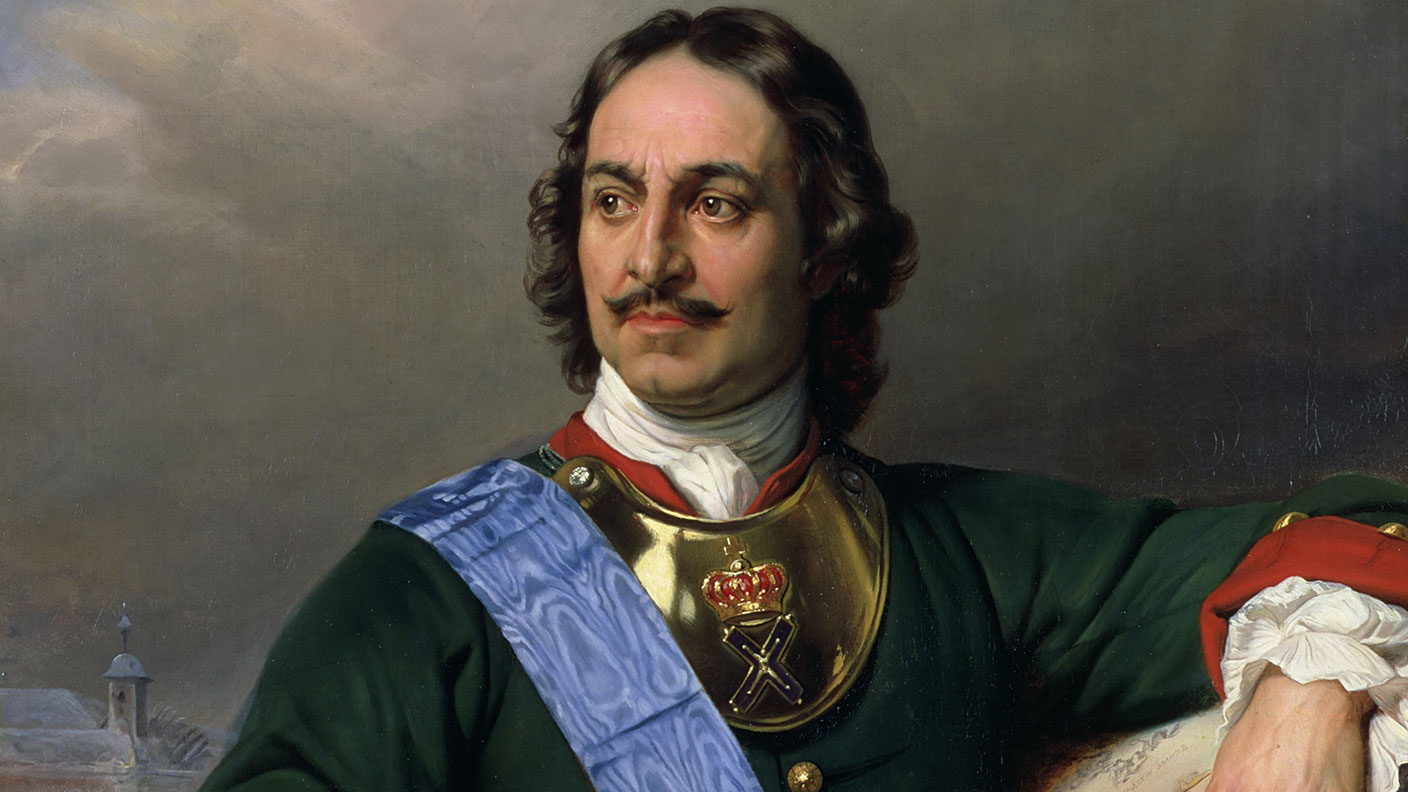5 September 1698: Peter the Great’s beard tax
Tsar Peter I was determined to bring Russia into line with the rest of Europe. So, on this day in 1698, he introduced a rather unorthodox tax policy.


Get the latest financial news, insights and expert analysis from our award-winning MoneyWeek team, to help you understand what really matters when it comes to your finances.
You are now subscribed
Your newsletter sign-up was successful
Want to add more newsletters?
In 1696, after the death of his half-brother Ivan, Pyotr Alexeyevich became Tsar Peter I (pictured). After a trip to Austria, Holland and England, Peter the Great' decided that Russia had to be modernised to bring it into line with Europe.
One of his most important symbolic decisions was to tax beards and traditional clothing. The tax, which applied to everyone except priests and peasants, was very successful in getting people to adopt more modern garb.
These cultural changes were accompanied by political and military reforms, among them his attempt to turn Russia into a maritime power by greatly expanding its navy.
Try 6 free issues of MoneyWeek today
Get unparalleled financial insight, analysis and expert opinion you can profit from.

Sign up to Money Morning
Don't miss the latest investment and personal finances news, market analysis, plus money-saving tips with our free twice-daily newsletter
Don't miss the latest investment and personal finances news, market analysis, plus money-saving tips with our free twice-daily newsletter
The port of St Petersburg was founded in 1703 and became the Russiancapital ten years later. He also centralised the machineryof government, reducing the power of the nobility.
This allowed Russia to defeat Swedish and Turkish invaders, and to extend Russian control over the Baltic countries, turning it into a major world power. But while Peter made Russia stronger in the short run, his rule set it back in other ways.
He used mass executions to crush dissent, and increased state control over the Russian Orthodox Church, while his decision to strengthen the rights of masters over their serfs prevented the emergence of democracy.
Some even argue that Peter's use of secret police provided the template for Stalin's terror, over 200 years later.
Get the latest financial news, insights and expert analysis from our award-winning MoneyWeek team, to help you understand what really matters when it comes to your finances.

-
 Student loans debate: should you fund your child through university?
Student loans debate: should you fund your child through university?Graduates are complaining about their levels of student debt so should wealthy parents be helping them avoid student loans?
-
 Review: Pierre & Vacances – affordable luxury in iconic Flaine
Review: Pierre & Vacances – affordable luxury in iconic FlaineSnow-sure and steeped in rich architectural heritage, Flaine is a unique ski resort which offers something for all of the family.
-
 31 August 1957: the Federation of Malaya declares independence from the UK
31 August 1957: the Federation of Malaya declares independence from the UKFeatures On this day in 1957, after ten years of preparation, the Federation of Malaya became an independent nation.
-
 13 April 1960: the first satellite navigation system is launched
13 April 1960: the first satellite navigation system is launchedFeatures On this day in 1960, Nasa sent the Transit 1B satellite into orbit to provide positioning for the US Navy’s fleet of Polaris ballistic missile submarines.
-
 9 April 1838: National Gallery opens in Trafalgar Square
9 April 1838: National Gallery opens in Trafalgar SquareFeatures On this day in 1838, William Wilkins’ new National Gallery building in Trafalgar Square opened to the public.
-
3 March 1962: British Antarctic Territory is created
Features On this day in 1962, Britain formed the British Antarctic Territory administered from the Falkland Islands.
-
10 March 2000: the dotcom bubble peaks
Features Tech mania fanned by the dawning of the internet age inflated the dotcom bubble to maximum extent, on this day in 2000.
-
9 March 1776: Adam Smith publishes 'The Wealth of Nations'
Features On this day in 1776, Adam Smith, the “father of modern economics”, published his hugely influential book The Wealth of Nations.
-
 8 March 1817: the New York Stock Exchange is formed
8 March 1817: the New York Stock Exchange is formedFeatures On this day in 1817, a group of brokers moved out of a New York coffee house to form what would become the biggest stock exchange in the world.
-
7 March 1969: Queen Elizabeth II officially opens the Victoria Line
Features On this day in 1969, Queen Elizabeth II took only her second trip on the tube to officially open the underground’s newest line – the Victoria Line.